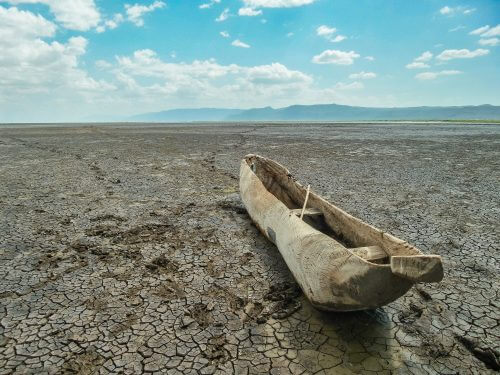A group of researchers who published their findings in "Nature" examined the economic factors that affect the damage to the environment. Their goal was to present a conservation outline that would suit every country on the African continent, while taking a general approach to all countries. Data from all countries were ranked to include ways to improve the environment

The social and economic changes in Africa are influenced by the investments of foreign parties.
A lot of money is devoted to activities such as road construction, expansion of forest areas, investments in agriculture and farm animals, all at the same time as the influx of locals to the growing and crowded cities. All these increase the pressure on the natural environment.
Previous studies on these changes focused mainly on species or populations found in protected areas. Unfortunately, the effects of social and economic conditions among the human population that cause environmental damage on the entire African continent have not been examined. Not knowing which conditions cause the most severe vulnerabilities limits Africa and its leaders from reaching decisions and acting for a sustainable future.
A group of researchers published their findings in Nature” examined the economic factors that affect the damage to the environment. Their goal was to present a conservation outline that would suit every country on the African continent, while taking a general approach to all countries. Data from all countries were ranked to include ways to improve the environment. The ranking is important because it allows civil bodies and country leaders to understand the impact on the environment and act for improvement.
Surprisingly, at least for the writer of these lines, the countries with the better environmental results were the Central African Republic, Botswana, Namibia and the Democratic Republic of Congo. The countries with the worst results were Morocco, Algeria, South Africa and Ghana.
to achieve measured results The damage to species in general and protected areas in particular,
Deforestation and drying of wetlands, this while referring to the uniqueness of Africa. The researchers note that in the past usually There was reference to individual species.
In order to obtain environmental performance indicators on a broad scale, many data were added, most of which are unique to African countries:
- The capacity of countries to maintain large animals (megafauna)
- Environmental "assets" that enable sustainable use, or The environmental footprint
- States' relations with endangered species
- The size of the forest areas cut down in the last decade
- The amounts of water diverted from natural flow sources
- The size of the area occupied by agriculture and grazing
- The amount of greenhouse gas emissions from occupied surfaces
It turns out that there was a prominent correlation and connection between the damage to the environment and the population density. The greater the number of people per square meter, the worse the condition of the environment. Previous studies have shown the great significance of the relationship between the density of the human population and the ability of the environment to contain and satisfy the required needs.
According to the researchers, the country's wealth had less impact on the environment. It was found that Rich countries tend to cause more environmental damage - a result that is similar to the findings in a previous study.
An effect of inequality was also found: a country where wealth is distributed unequally, so there is less damage to the environment. The researchers explain this by saying that in countries where inequality has increased, there is less capital for development, that is, fewer economic options for exploiting the environment in a way that causes damage, such as deforestation, mining or overgrazing.
One of the important findings was that governments are not the main factor. Countries where the government is weak were not bad in environmental results, And it turns out that this result is reflected in previous studies.
The environmental system in Africa is under increasing pressure. The relationship between the quality of people's lives and the environment is fundamental and significant. Obviously that The continuation of the damage will have a negative and severe effect on the quality of life of the residents. The researchers conclude that international agreements can help protect the environment and there are ways to promote countries in a way that will improve the future of the environment. In addition, they state that limiting population growth will benefit the health of the African environment.
As I always say: it is appropriate that instead of controlling the environment for the sake of the human population, there should be control of the human population for the sake of the environment.
More of the topic in Hayadan:
